Net Promoter Score (NPS®) is a proven methodology for measuring customer loyalty through first-hand feedback. Net Promoter Score is a popular customer experience metric because it is simple, effective, and correlated to revenue growth.
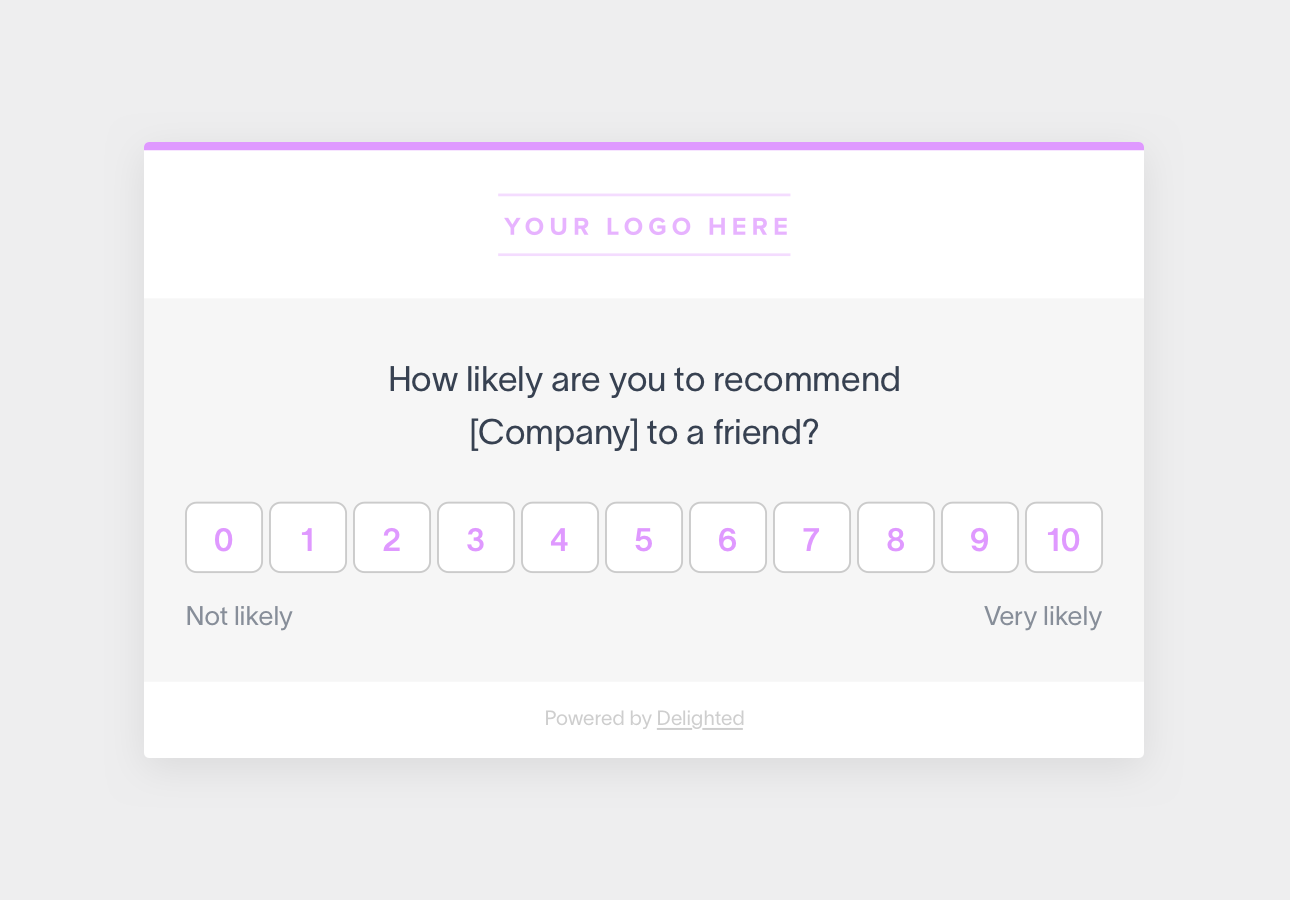
So what is NPS? Net Promoter Score is a customer experience metric that measures loyalty and is predictive of business growth. NPS is calculated by asking an initial survey question on a 0–10 rating scale. Then, the accumulated ratings are graded as one number between -100 and 100. This number expresses how customers perceive a company.
Fred Reichheld, a partner at Bain & Company, developed the NPS metric in 2003 after analyzing how traditional customer satisfaction survey questions correlate to consumer behavior. The carefully phrased survey question, “How likely are you to recommend [company] to a [friend or colleague]?” is now utilized by millions of brands.
Join 75,000+ of the world's most beloved brands
NPS provides a score, ranging from −100 to 100, that serves as a report card, grading your overall customer experience. Customers are segmented into three groups (promoters, passives, detractors) according to their numerical response to the 0–10 rating question.








 71
71
 14
14
If you already have responses from a previous NPS survey, you can make your Net Promoter Score calculation with our interactive NPS calculator or benchmark your NPS score against others in your industry.
To find out what is a good NPS score or to get more information on how to calculate NPS, check out our NPS resources.
Understanding how Net Promoter Score groupings come together can help you grow.
Now that we’ve gone through the NPS definition and its value in-depth, let’s walk through how you can use the Net Promoter system for your business.
Collect a range of verbatim feedback from happy and unhappy customers alike.
Net Promoter Score is comprised of a carefully crafted single-question survey. Customers answer this question in two parts. The first part is a 0–10 numerical rating. This provides a standardized quantitative benchmark that can be tracked over time and compared to others in your industry.
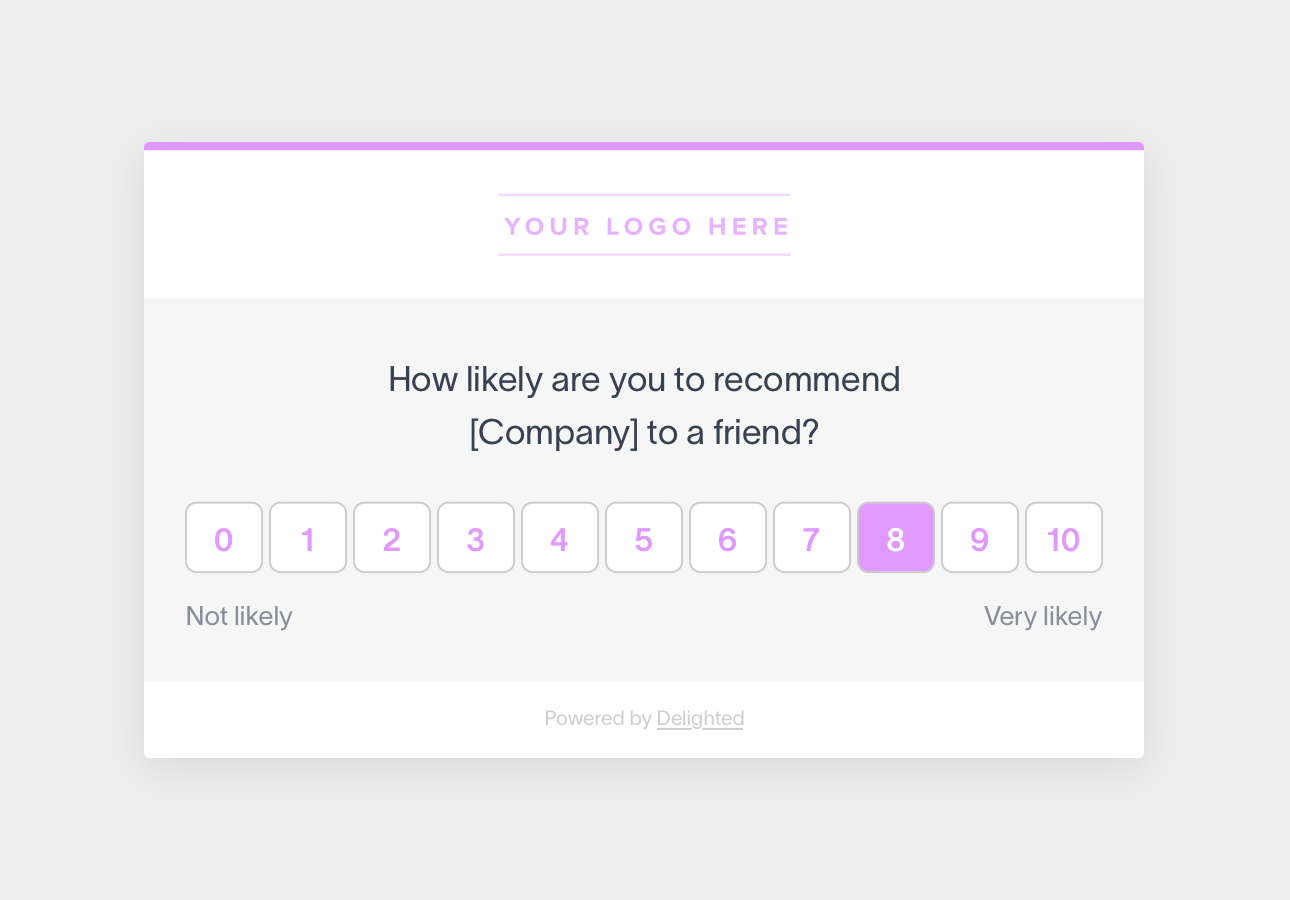
Respondents are able to explain their rating in the second part of the survey: a free-form follow-up question. This is where the real power of the Net Promoter Score system reveals itself. It allows the customer to provide context for their rating in their own words, free from any bias that targeted survey questions might impart.
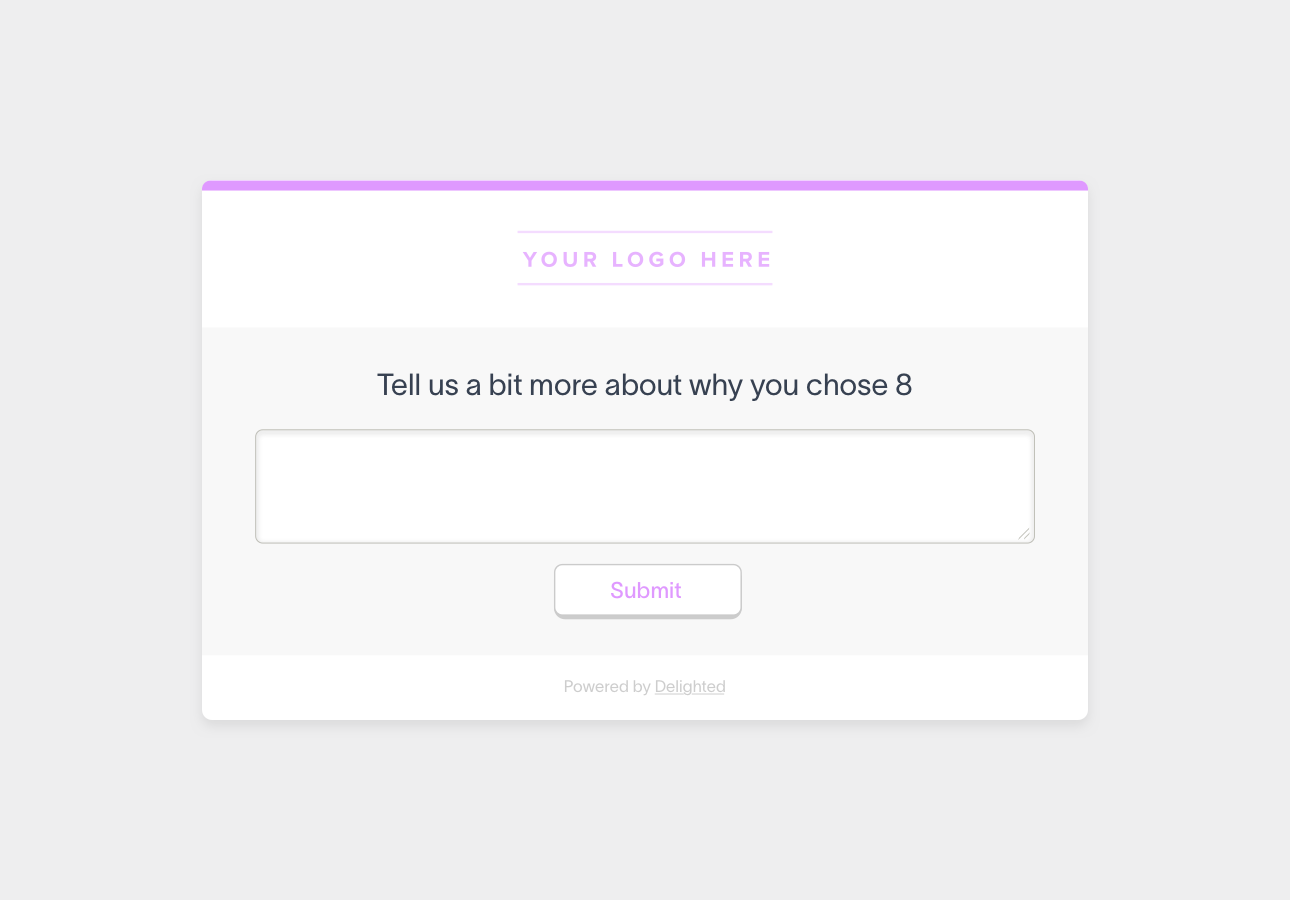
Your Net Promoter Score survey can be distributed through a variety of methods – email, link, or on your website. Most companies find it helpful to have a dedicated NPS software to deliver the survey automatically after the customer has had a full experience of the brand. These platforms also help tally the responses and calculate your NPS score.
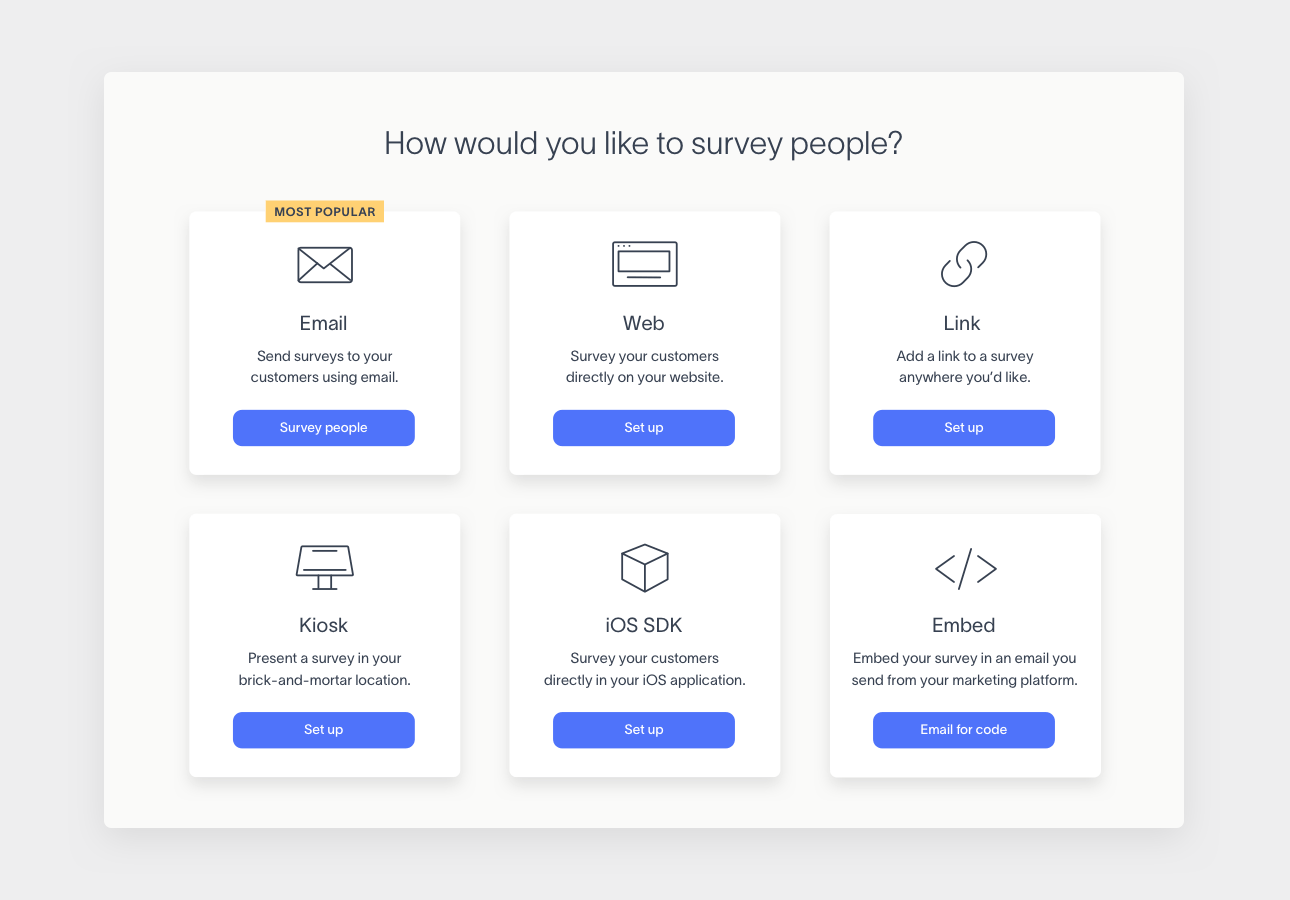
What is Net Promoter Score in relation to tracking? Your score allows you to quantify how changes you make to your product or service affect the customer experience and long-term business performance.
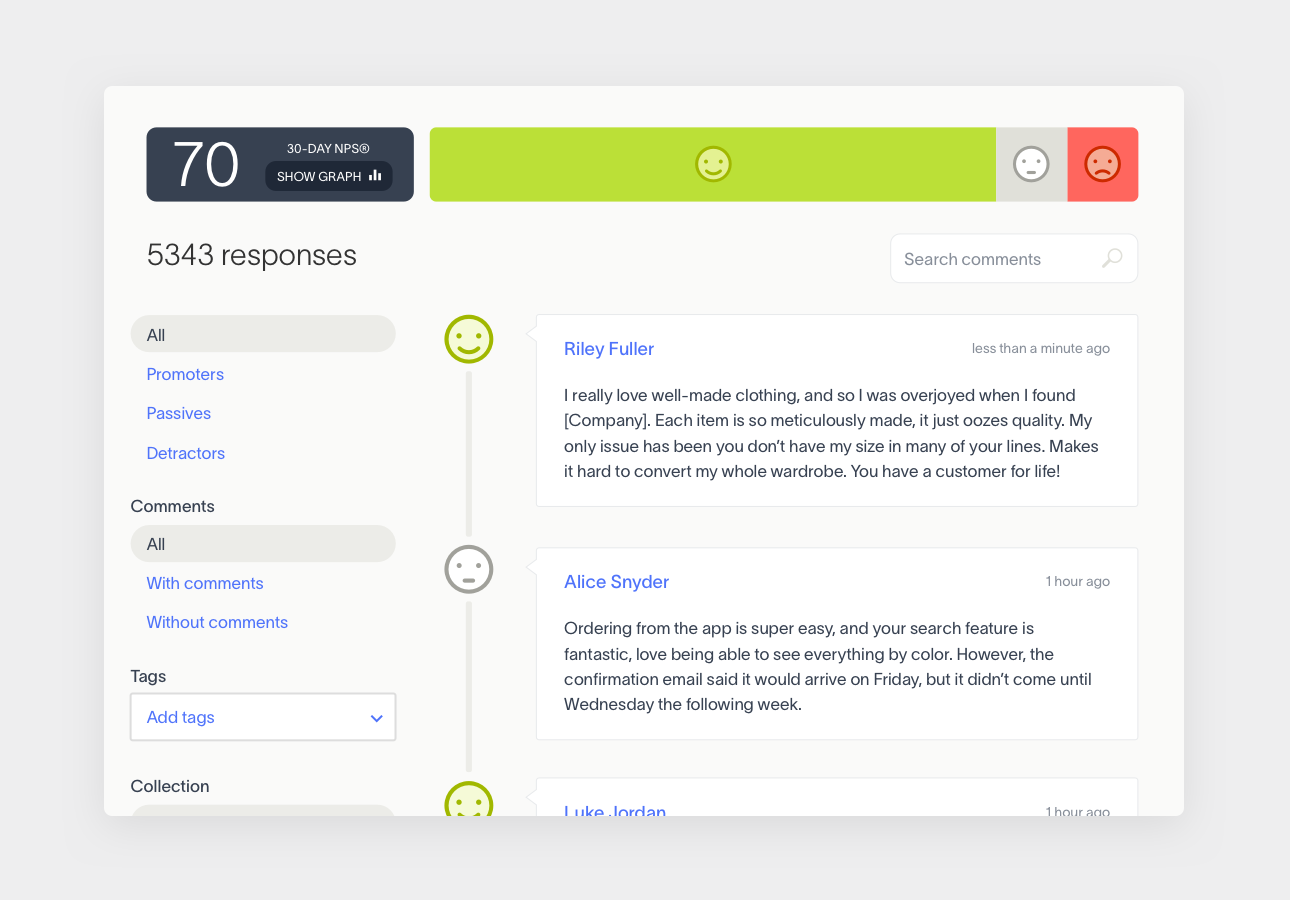
Delighted helps some of the world’s most coveted brands gather actionable customer feedback and make customer satisfaction a competitive advantage.



Net Promoter Scores help businesses across all industries to gather feedback quickly, develop a strategy for improving experiences across the customer journey, and as a result, increase their brand loyalty and revenue for long-term success.